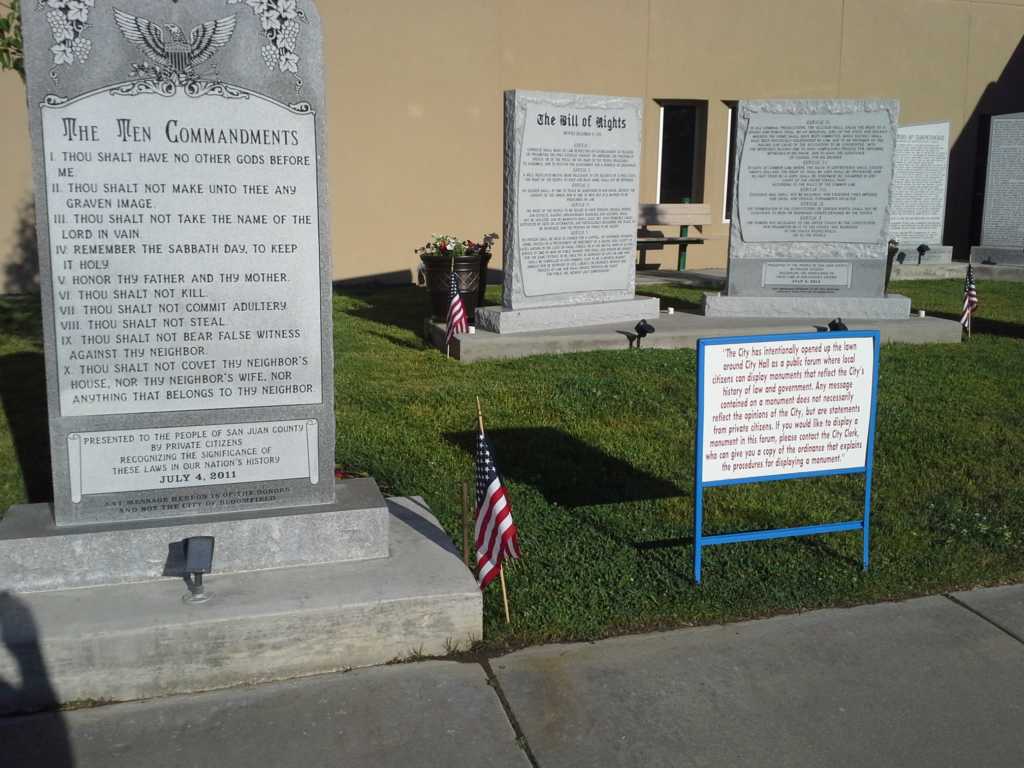On Monday, the U.S. Supreme Court took sides in a heated dispute over a Ten Commandments display on the lawn of a city hall building in Bloomfield, New Mexico, siding with lower courts that found its presence unconstitutional.
It’s a conclusion to the City of Bloomfield v. Felix case that has the American Civil Liberties Union, among other groups, elated, heralding the move as a First Amendment victory. Meanwhile, conservative critics are less than content over the SCOTUS decision.
David Cortman, an attorney with Alliance Defending Freedom, a religious liberty law firm, said that confusion remains among lower courts over how these issues should be handled, The Associated Press reported.
“Americans shouldn’t be forced to censor religion’s role in history simply to appease someone who is offended by it or who has a political agenda to remove all traces of religion from the public square,” Cortman said. “In this case, the U.S. Supreme Court had the opportunity to affirm, as it recently did, that ‘an Establishment Clause violation is not made out any time a person experiences a sense of affront from the expression of contrary religious views.'”
He noted that he is hopeful the high court will eventually “resolve the confusion” among lower courts on the issue.
Debate over the Ten Commandments display in Bloomfield kicked off after a Wiccan group complained about its presence, claiming that it elevated one faith tradition above others. Then, the ACLU stepped in to defend some of those members by filing a lawsuit against the city.
The first official legal blow was dealt to the Ten Commandments monument in 2014, when U.S. District Court Judge James Parker ruled that it must be taken down, arguing that it violated the First Amendment’s Establishment Clause.
“In view of the circumstances surrounding the context, history, and purpose of the Ten Commandments monument, it is clear that the city of Bloomfield has violated the Establishment Clause because its conduct in authorizing the continued display of the monument on city property has had the primary or principal effect of endorsing religion,” Parker said at the time, according to The Christian Post.
Then, in 2016, the Tenth Circuit Court of Appeals agreed with Parker. And rounding out those losses, the Supreme Court this week decided not to hear the case, despite pleas from the Alliance Defending Freedom.
That denial means the latest lower court ruling against the monument will stand.
It should be noted that Justice Neil Gorsuch did not take part in the Supreme Court’s actions, as he was not yet serving when the case was taken up.



